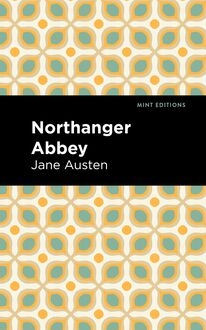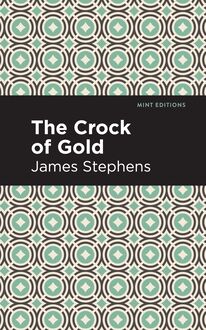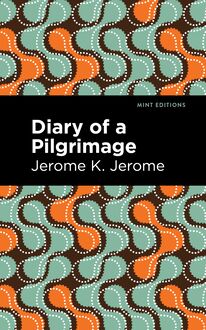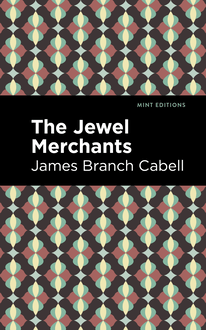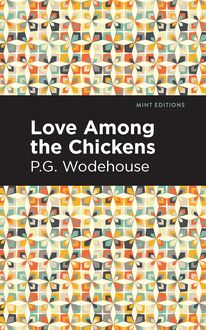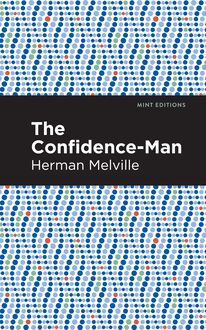-
 Univers
Univers
-
 Ebooks
Ebooks
-
 Livres audio
Livres audio
-
 Presse
Presse
-
 Podcasts
Podcasts
-
 BD
BD
-
 Documents
Documents
-
- Cours
- Révisions
- Ressources pédagogiques
- Sciences de l’éducation
- Manuels scolaires
- Langues
- Travaux de classe
- Annales de BEP
- Etudes supérieures
- Maternelle et primaire
- Fiches de lecture
- Orientation scolaire
- Méthodologie
- Corrigés de devoir
- Annales d’examens et concours
- Annales du bac
- Annales du brevet
- Rapports de stage
La lecture à portée de main
Vous pourrez modifier la taille du texte de cet ouvrage
Découvre YouScribe en t'inscrivant gratuitement
Je m'inscrisDécouvre YouScribe en t'inscrivant gratuitement
Je m'inscrisEn savoir plus
Vous pourrez modifier la taille du texte de cet ouvrage
En savoir plus

Description
When Lady Maud Marsh, a passionate young woman, admits to her affluent family that she is in love with a poor man, they forbid her from leaving the house. Having met the man, Geoffrey, the previous summer in Wales, Maud is set on marrying him, but will not tell her family who he is. George Bevan is a bored and lonely composer from America who has valiant dreams of helping a damsel in distress. One night, after seeing a play, he gets his wish. After calling a taxi for himself, Maud, who had been out with her family, jumps in before he can and asks him to hide her. Though he did not know who she was, George thought Maud was attractive, and decided to help. While he creates a distraction, Maud sneaks off in hope of seeing Geoffrey. However, she is unsuccessful. Soon after, George discovers Maud’s identity and visits her at home. When the two begin to grow closer as friends, Maud’s family assumes that George is the man she loves. They tell George as much, warning him to stay away. As Maud dreams of seeing Geoffrey again, George is hoping to ask for her hand in marriage, while neither realize that they’ve been immersed in a love triangle.
With charming prose and masterful description, A Damsel in Distress by P.G Wodehouse is a hilarious and touching romance, filled with dramatic love triangles and misunderstandings. A Damsel in Distress has been adapted into several film formats, including a silent film and a musical. Featuring classic romance and delightful humor, this P.G Wodehouse narrative proves to be timeless.
Now presented in an easy-to-read font and with an eye-catching new cover design, this edition of A Damsel in Distress by P.G Wodehouse is accessible to a contemporary audience.
Sujets
Informations
| Publié par | Mint Editions |
| Date de parution | 12 janvier 2021 |
| Nombre de lectures | 0 |
| EAN13 | 9781513275758 |
| Langue | English |
| Poids de l'ouvrage | 1 Mo |
Informations légales : prix de location à la page 0,0500€. Cette information est donnée uniquement à titre indicatif conformément à la législation en vigueur.
Extrait
A Damsel in Distress
P.G. Wodehouse
A Damsel in Distress was first published in 1919.
This edition published by Mint Editions 2021.
ISBN 9781513270753 | E-ISBN 9781513275758
Published by Mint Editions®
minteditionbooks.com
Publishing Director: Jennifer Newens
Design & Production: Rachel Lopez Metzger
Typesetting: Westchester Publishing Services
C ONTENTS C HAPTER 1 C HAPTER 2 C HAPTER 3 C HAPTER 4 C HAPTER 5 C HAPTER 6 C HAPTER 7 C HAPTER 8 C HAPTER 9 C HAPTER 10 C HAPTER 11 C HAPTER 12 C HAPTER 13 C HAPTER 14 C HAPTER 15 C HAPTER 16 C HAPTER 17 C HAPTER 18 C HAPTER 19 C HAPTER 20 C HAPTER 21 C HAPTER 22 C HAPTER 23 C HAPTER 24 C HAPTER 25 C HAPTER 26 C HAPTER 27
Chapter 1
I nasmuch as the scene of this story is that historic pile, Belpher Castle, in the county of Hampshire, it would be an agreeable task to open it with a leisurely description of the place, followed by some notes on the history of the Earls of Marshmoreton, who have owned it since the fifteenth century. Unfortunately, in these days of rush and hurry, a novelist works at a disadvantage. He must leap into the middle of his tale with as little delay as he would employ in boarding a moving tramcar. He must get off the mark with the smooth swiftness of a jack-rabbit surprised while lunching. Otherwise, people throw him aside and go out to picture palaces.
I may briefly remark that the present Lord Marshmoreton is a widower of some forty-eight years: that he has two children—a son, Percy Wilbraham Marsh, Lord Belpher, who is on the brink of his twenty-first birthday, and a daughter, Lady Patricia Maud Marsh, who is just twenty: that the chatelaine of the castle is Lady Caroline Byng, Lord Marshmoreton’s sister, who married the very wealthy colliery owner, Clifford Byng, a few years before his death (which unkind people say she hastened): and that she has a step-son, Reginald. Give me time to mention these few facts and I am done. On the glorious past of the Marshmoretons I will not even touch.
Luckily, the loss to literature is not irreparable. Lord Marshmoreton himself is engaged upon a history of the family, which will doubtless be on every bookshelf as soon as his lordship gets it finished. And, as for the castle and its surroundings, including the model dairy and the amber drawing-room, you may see them for yourself any Thursday, when Belpher is thrown open to the public on payment of a fee of one shilling a head. The money is collected by Keggs the butler, and goes to a worthy local charity. At least, that is the idea. But the voice of calumny is never silent, and there exists a school of thought, headed by Albert, the page-boy, which holds that Keggs sticks to these shillings like glue, and adds them to his already considerable savings in the Farmers’ and Merchants’ Bank, on the left side of the High Street in Belpher village, next door to the Oddfellows’ Hall.
With regard to this, one can only say that Keggs looks far too much like a particularly saintly bishop to indulge in any such practices. On the other hand, Albert knows Keggs. We must leave the matter open.
Of course, appearances are deceptive. Anyone, for instance, who had been standing outside the front entrance of the castle at eleven o’clock on a certain June morning might easily have made a mistake. Such a person would probably have jumped to the conclusion that the middle-aged lady of a determined cast of countenance who was standing near the rose-garden, talking to the gardener and watching the young couple strolling on the terrace below, was the mother of the pretty girl, and that she was smiling because the latter had recently become engaged to the tall, pleasant-faced youth at her side.
Sherlock Holmes himself might have been misled. One can hear him explaining the thing to Watson in one of those lightning flashes of inductive reasoning of his. “It is the only explanation, my dear Watson. If the lady were merely complimenting the gardener on his rose-garden, and if her smile were merely caused by the excellent appearance of that rose-garden, there would be an answering smile on the face of the gardener. But, as you see, he looks morose and gloomy.”
As a matter of fact, the gardener—that is to say, the stocky, brown-faced man in shirt sleeves and corduroy trousers who was frowning into a can of whale-oil solution—was the Earl of Marshmoreton, and there were two reasons for his gloom. He hated to be interrupted while working, and, furthermore, Lady Caroline Byng always got on his nerves, and never more so than when, as now, she speculated on the possibility of a romance between her step-son Reggie and his lordship’s daughter Maud.
Only his intimates would have recognized in this curious corduroy-trousered figure the seventh Earl of Marshmoreton. The Lord Marshmoreton who made intermittent appearances in London, who lunched among bishops at the Athenaeum Club without exciting remark, was a correctly dressed gentleman whom no one would have suspected of covering his sturdy legs in anything but the finest cloth. But if you will glance at your copy of Who’s Who, and turn up the “M’s,” you will find in the space allotted to the Earl the words “Hobby—Gardening.” To which, in a burst of modest pride, his lordship has added “Awarded first prize for Hybrid Teas, Temple Flower Show, 1911.” The words tell their own story.
Lord Marshmoreton was the most enthusiastic amateur gardener in a land of enthusiastic amateur gardeners. He lived for his garden. The love which other men expend on their nearest and dearest Lord Marshmoreton lavished on seeds, roses and loamy soil. The hatred which some of his order feel for Socialists and Demagogues Lord Marshmoreton kept for rose slugs, rose-beetles and the small, yellowish-white insect which is so depraved and sinister a character that it goes through life with an alias—being sometimes called a rose-hopper and sometimes a thrip. A simple soul, Lord Marshmoreton—mild and pleasant. Yet put him among the thrips, and he became a dealer-out of death and slaughter, a destroyer in the class of Attila the Hun and Genghis Khan. Thrips feed on the underside of rose leaves, sucking their juice and causing them to turn yellow; and Lord Marshmoreton’s views on these things were so rigid that he would have poured whale-oil solution on his grandmother if he had found her on the underside of one of his rose leaves sucking its juice.
The only time in the day when he ceased to be the horny-handed toiler and became the aristocrat was in the evening after dinner, when, egged on by Lady Caroline, who gave him no rest in the matter—he would retire to his private study and work on his History of the Family, assisted by his able secretary, Alice Faraday. His progress on that massive work was, however, slow. Ten hours in the open air make a man drowsy, and too often Lord Marshmoreton would fall asleep in mid-sentence to the annoyance of Miss Faraday, who was a conscientious girl and liked to earn her salary.
The couple on the terrace had turned. Reggie Byng’s face, as he bent over Maud, was earnest and animated, and even from a distance it was possible to see how the girl’s eyes lit up at what he was saying. She was hanging on his words. Lady Caroline’s smile became more and more benevolent.
“They make a charming pair,” she murmured. “I wonder what dear Reggie is saying. Perhaps at this very moment—”
She broke off with a sigh of content. She had had her troubles over this affair. Dear Reggie, usually so plastic in her hands, had displayed an unaccountable reluctance to offer his agreeable self to Maud—in spite of the fact that never, not even on the public platform which she adorned so well, had his step-mother reasoned more clearly than she did when pointing out to him the advantages of the match. It was not that Reggie disliked Maud. He admitted that she was a “topper,” on several occasions going so far as to describe her as “absolutely priceless.” But he seemed reluctant to ask her to marry him. How could Lady Caroline know that Reggie’s entire world—or such of it as was not occupied by racing cars and golf—was filled by Alice Faraday? Reggie had never told her. He had not even told Miss Faraday.
“Perhaps at this very moment,” went on Lady Caroline, “the dear boy is proposing to her.”
Lord Marshmoreton grunted, and continued to peer with a questioning eye in the awesome brew which he had prepared for the thrips.
“One thing is very satisfactory,” said Lady Caroline. “I mean that Maud seems entirely to have got over that ridiculous infatuation of hers for that man she met in Wales last summer. She could not be so cheerful if she were still brooding on that. I hope you will admit now, John, that I was right in keeping her practically a prisoner here and never allowing her a chance of meeting the man again either by accident or design. They say absence makes the heart grow fonder. Stuff! A girl of Maud’s age falls in and out of love half a dozen times a year. I feel sure she has almost forgotten the man by now.”
“Eh?” said Lord Marshmoreton. His mind had been far away, dealing with green flies.
“I was speaking about that man Maud met when she was staying with Brenda in Wales.”
“Oh, yes!”
“Oh, yes!” echoed Lady Caroline, annoyed. “Is that the only comment you can find to make? Your only daughter becomes infatuated with a perfect stranger—a man we have never seen—of whom we know nothing, not even his name—nothing except that he is an American and hasn’t a penny—Maud admitted that. And all you say is ‘Oh, yes!’ ”
“But it’s all over now, isn’t it? I understood the dashed affair was all over.”
“We hope so. But I should feel safer if Maud were engaged to Reggie. I do think you might take the trouble to speak to Maud.”
“Speak to her? I do speak to her.” Lord Marshmoreton’s brain moved slowly when he was pre-occupied with his roses. “We’re on excellent terms.”
Lady Caroline frowned impatiently. Hers was an alert, vigorous mind,
-
 Univers
Univers
-
 Ebooks
Ebooks
-
 Livres audio
Livres audio
-
 Presse
Presse
-
 Podcasts
Podcasts
-
 BD
BD
-
 Documents
Documents
-
Jeunesse
-
Littérature
-
Ressources professionnelles
-
Santé et bien-être
-
Savoirs
-
Education
-
Loisirs et hobbies
-
Art, musique et cinéma
-
Actualité et débat de société
-
Jeunesse
-
Littérature
-
Ressources professionnelles
-
Santé et bien-être
-
Savoirs
-
Education
-
Loisirs et hobbies
-
Art, musique et cinéma
-
Actualité et débat de société
-
Actualités
-
Lifestyle
-
Presse jeunesse
-
Presse professionnelle
-
Pratique
-
Presse sportive
-
Presse internationale
-
Culture & Médias
-
Action et Aventures
-
Science-fiction et Fantasy
-
Société
-
Jeunesse
-
Littérature
-
Ressources professionnelles
-
Santé et bien-être
-
Savoirs
-
Education
-
Loisirs et hobbies
-
Art, musique et cinéma
-
Actualité et débat de société
- Cours
- Révisions
- Ressources pédagogiques
- Sciences de l’éducation
- Manuels scolaires
- Langues
- Travaux de classe
- Annales de BEP
- Etudes supérieures
- Maternelle et primaire
- Fiches de lecture
- Orientation scolaire
- Méthodologie
- Corrigés de devoir
- Annales d’examens et concours
- Annales du bac
- Annales du brevet
- Rapports de stage

